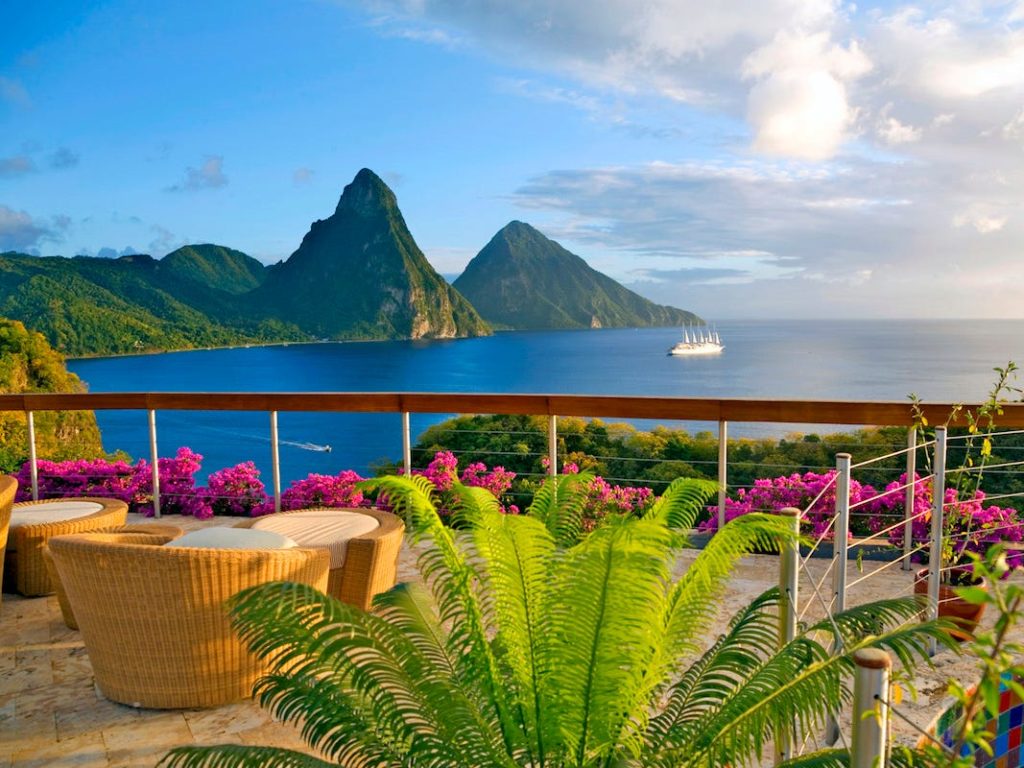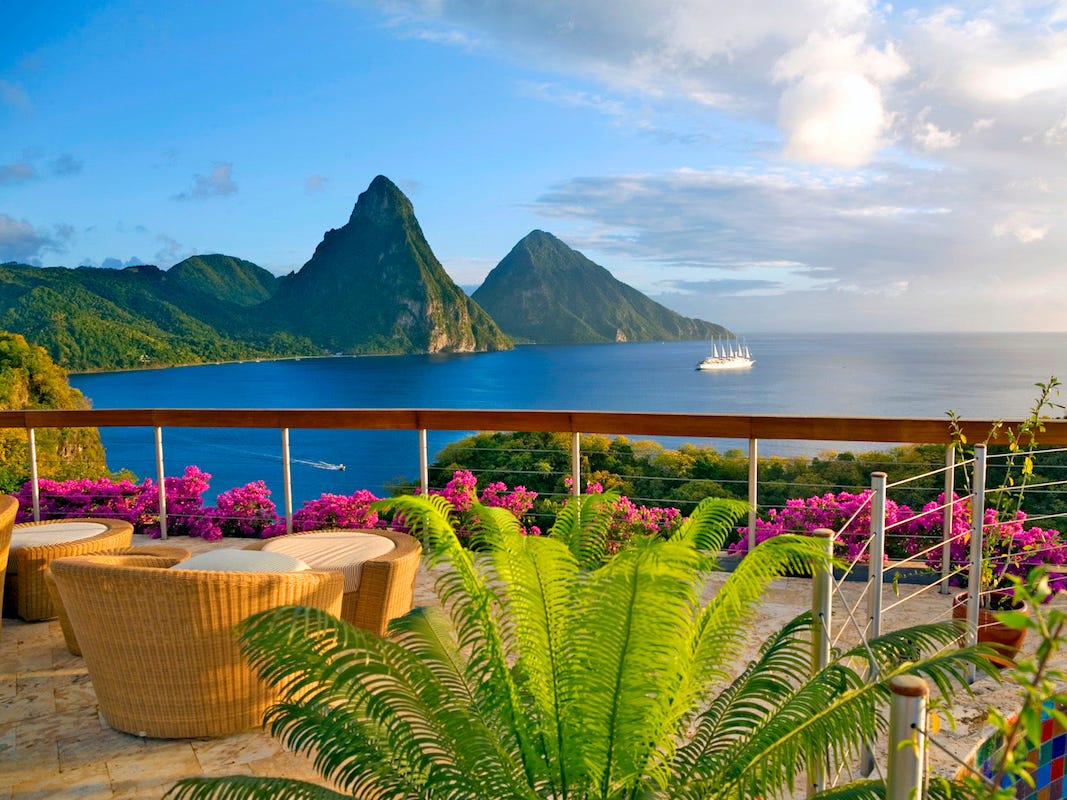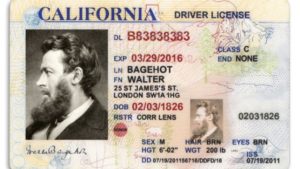
The super-rich are no longer just spending their money on private jets, yachts, and hotels — they’re also splashing out on second passports.
The Second Citizenship Survey 2019 from CS Global Partners found that 89% of people would like to own a second passport, and over 34% said they had looked into investing in a second citizenship.
Even more striking were the 80% who said they would be willing to invest or donate 5% of their annual salary for a second citizenship — more than they spend on monthly rent.
Luckily, a number of countries offer Citizenship by Investment (CIP) programs where money — normally invested in real estate — can actually buy a second passport, and the elite status that comes along with owning citizenship in another country.
Other programs offer “elite residency” — an extended visa with perks — in exchange for similar investments.
Nuri Katz, President of Apex Capital Partners, an international advisory firm that specializes in CIPs, told Business Insider: “For a lot of wealthy people having a second or third passport is important for the ability to travel. For some it’s also a status symbol, like buying a fancy car to show your friends.”
He added that along with the travel benefits and the status that comes along with owning real estate around the world, the programs also allow people to manage their tax burdens.
“Second citizenship is becoming more than just getting a passport,” he said. “There are certain advantages towards using second citizenship to create residence in countries where tax burdens would be lower than where you are at the current time.”
However, Katz explained there’s a difference between CIPs and residency programs.
“Citizenship is forever, and cannot be taken away unless you received it under fraudulent circumstances,” he said. “You also get a passport.”
Meanwhile, as laws change, a residency visa can be taken away — but it’s a more affordable way to get the perks that come along with living in another country.
In order to put together a complete list of countries that offer citizenship or residency by investment, along with advice from Katz, Business Insider consulted the latest CBI Index, published by the Financial Times’ PWM magazine, and spoke to global investment migration firm Henley & Partners and global citizenship and residence planning company Knightsbridge Capital Partners.
Whether you choose to splash out for full citizenship or you invest in residency, here are 23 countries where money can buy you a second passport — or at least a chance to live long-term abroad — ranked by cost, from cheapest to most expensive.
23. Thailand — ‘Elite residency’ from THB 500,000 ($15,253 or £11,793).

The Thai government offers “elite” residency visas for wealthy foreign citizens, allowing them to live in the country for around $3,000 a year.
There are seven different packages, with the most expensive being the “Elite Ultimate Privilege” scheme for $60,000 for 20 years of residency.
Here are the three most popular options, according to Henley & Partners:
Elite Easy Access
- Five-year residence visa for the one-time fee of THB 500,000 ($15,253)
Elite Family Excursion
- A five-year visa for two people, for a one-time fee of THB 800,000 ($24,405), plus an additional charge of THB 300,000 ($9,152) per dependent.
- 20-year residence visa for a one-time fee of THB 2.14 million ($65,283)
-Package includes complimentary VIP privileges such as government concierge services and airport services
22. Latvia — Residency from €64,600 (£58,318 or $74,973).

For residency in Latvia, here’s what’s required:
- A minimum of €286,000 ($333,064 or £257,472) over a period of five years in a credit institution, or;
- To invest in equity capital, the foreign national must invest a minimum of €36,000 ($41,924 or £32,409) and must pay a minimum of €28,600 ($33,306 or £25,747) in the next year.
Henley & Partners added that there are also options to apply for the residence permit through the purchase of real estate or interest-free government bonds.
You can apply for citizenship after five years through process of naturalization (i.e. language test, history test), according to Katz.
“The true catch here is when they want to get citizenship, they have to take a language test, and Latvian is an impossible language to learn as an adult,” Katz said.
“No one can, and they know it, and as such they know no one will ever become a citizen.”
=19. Saint Lucia — Citizenship from $100,000 (£77,786).

There are three ways to get citizenship in Saint Lucia, according to Katz:
- A donation of at least $100,000 (£77,113) to the Saint Lucia National Economic Fund (depending on number of dependents), or;
- Investment of at least $300,000 (£231,517) in an approved real estate development, or;
- Investment of $3.5 million (£2.7 million) in an approved enterprise project.
=19. Dominica — Citizenship from $100,000 (£77,786).

Dominica is appealing due to its visa-free access to more than 110 countries, according to Arabian Business.
Katz said there are two options:
- A donation to the National Transformation Fund of $100,000 (£77,113) for a single applicant, or $200,000 (£154,226) for a family of four, or;
- A real estate investment of $200,000 (£154,226).
=19. Antigua and Barbuda — Citizenship from $100,000 (£77,786).

There are three ways to get citizenship through investment in Antigua and Barbuda:
- Real estate investment of a least $400,000 (£308,452), or;
- A donation to the National Development Fund of $100,000, or;
- A $400,000 investment in an existing but newly-created business venture.
=17. St. Kitts and Nevis — Citizenship from $150,000 (£116,657).

Following the devastation St. Kitts and Nevis faced after last year’s hurricane season, pricing for the CIP programme has been adjusted, according to Katz. Its citizens also now have access to more than 150 jurisdictions worldwide, since the country has signed travel treaties with the likes of Russia, Moldova, Nepal, India, Indonesia, Rwanda, and Taiwan within the last year.
Here are your options, according to Henley & Partners:
- A non-refundable donation of $250,000 for a single applicant to the SIDF, a non-profit foundation which funds the developent of alternative industries to support the national economy, or;
- A non-refundable donation to the SIDF of $300,000 for an applicant with up to three dependants, as well as an additional $25,000 per additional dependent, or;
- A non-refundable contribution of $150,000 to the SGF, a fund which supports economic growth in all sectors of the economy, with an additional $25,000 for a spouse or $10,000 for each additional applicant, or;
- The purchase of real estate valued at at least $200,000 which cannot be sold for a seven-year period, or;The purchase of real estate valued at at least $400,000 which cannot be sold for a five-year period.
=17. Grenada — Citizenship from $150,000 (£115,910).

There are two ways to get citizenship through investment in Grenada:
- A $150,000 (£154,226) donation to the Grenada National Transformation Fund, or;
- Real estate investment of at least $350,000 (£269,874), plus some additional fees.
16. Vanuatu — Citizenship from $155,000 (£120,878).

According to the latest CBI Index, the Vanuatu Contribution Programme (VCP) is one of two active citizenship by investment schemes, alongside the Development Support Programme (DSP), but under the DSP citizens cannot vote or participate in political life.
Under the VCP, here are the requirements:
- A minimum contribution of $130,000, plus $25,000 in processing fees, and;
- A minimum net worth of $250,000.
15. Moldova — Citizenship from €146,300 ($169,292 or £130,798).

A CIP program has been confirmed for Moldova, and according to Henley & Partners, in order to qualify for citizenship, an applicant must make the following contribution:
-A minimum non-refundable contribution to the Public Investment Fund (PIF) of €100,000 for a single applicant, plus service provider and agent fees of €35,000, government fees of €5,000, due diligence fees of €6,000, and biometric passport fees of €300.
14. Cambodia — Citizenship from 1bn Cambodian riels ($245,230 or £191,309).

Cambodia has been allowing foreigners to naturalise following an investment since 1996, according to the latest CBI Index.
While the Cambodian senate approved a draft law on June 11, 2018 that could alter the country’s economic citizenship landscape (and increase the investment thresholds,) for now, these are the options:
- Invest 1.2bn Cambodian riels ($294,276 or £229,571) into the nation. Investment must be approved by either by the Cambodian Development Council or by the Royal Government, or;
- Donate 1bn Cambodian riels ($245,230 or £191,309) for the restoration and rebuilding of Cambodia’s economy.
Applications must also have knowledge of Khmer history and language, and must travel to Cambodia to obtain good behaviour, police, and health certificates, as well as to sign the relevant citizenship oath.
13. Turkey — Citizenship from $250,000 (£196,659).

Turkey’s economic citizenship programme, which was amended in September 2018 to lower the thresholds, offers five options, three of which involve investment over three years.
According to FO Consultancy and Invest in Turkey, the first three options are:
- Purchase a property valued at $250,000, or;
- Deposit $500,000 into a Turkish bank, or;
- Invest $500,000 in government bonds.
But there are two more routes:
- Investment of $500,000 in fixed capital, or;
- The creation of 50 jobs in Turkey.
12. Greece — Residency from €250,000 (£225,656 or $290,143).

To gain residency in Greece, you need to invest a minimum of €250,000 (£219,301) in Greek properties.
=11. Portugal — ‘Golden Visa’ from €350,000 (£315,919 or $406,200).

To gain residency in Portugal, there are plenty of options, according to Henley & Partners.
The options include:
Capital Transfer
- A transfer of at least €1 million into a Portuguese bank account, or approved investment option, or;
- €350,000 investment in research activities that are part of the national scientific and technological system, or;
- €350,000 investment in artistic production or the national cultural heritage, or;
- €350,000 in investment or venture capital funds committed to the capitalization of companies incorporated under the Portuguese law, with a maturity of at least five years.
Property Aquisition
- Real estate purchase of at least €500,000, or;
- Real estate purchase of at least €350,000 for the refurbishment of properties older than 30 years, or in an area of urban regeneration.
Business
- Creation of a minimum of 10 new jobs, or;
- €350,000 for the incorporation or increase of share capital of a Portugese company, creating or maintaining a minimum of five permanent jobs, for a period of three years.
=11. Montenegro — Citizenship from €350,000 ($406,200 or £315,919).

There are two options for citizenship by investment in Montenegro, according to Katz. A program limited to 2,000 applicants that will launch in October includes:
- Invest €250,000 in a government-approved development project in the northern part of Montenegro (undeveloped area); or
- Invest €450,000 in a government-approved development project in the southern part of Montenegro (developed area).
There’s an additional fee of €100,000 per application, which is also be paid to the government, and will be invested in “a special fund for the development of less developed areas within Montenegro.”
9. U.S. — Residency from $500,000 (£388,858).

The EB-5 visa leads to US conditional resident status (known as a green card), which can then lead to a U.S. passport.
Two years after conditional residence is granted, investors and their families become eligible for permanent residency.
Investment options:
- Investment of $500,000 (£385,594) in a rural area, or area with high unemployment into a new commercial enterprise to create 10 new full-time jobs, or;
- Direct investment of $1 million (£771,188) in an American commercial enterprise.
- Funds may stay invested until permanent resident status is granted (usually 4 years).
There is also the Regional Center Program, where applicants:
- Invest $500,00 into a designated Regional Centre project, becoming a limited partner of the enterprise
- The applicant is then free to live and work anywhere in the USA.
- However, they must have a net worth of at least $1 million.
8. Spain — “Golden Visa” from €500,000 (£451,312 or $580,286).

Spain has a Golden Visa program, which can eventually lead to citizenship.
Here are the options for residency, according to Henley & Partners:
- Minimum investment of €500,000 (£438,602) in real estates, or;
- Minimum investment of €1 million in shares of Spanish companies, or;
- Minimum deposit of €1 million at a Spanish bank, or;
- Minimum investment of €2 million in government bonds.
- After five years, applicant can request permanent residency.
- After 10 years, they can request citizenship.
7. Bulgaria — Citizenship from 1 million BGN (£461,422 or $593,384).

There are two investment options in Bulgaria.
Investment option one:
- A 1 million Bulgarian lev (£448,443) investment in a full-guaranteed government bond for five years.
- The investment will be returned to the investor after the term without interest.
The fast-track option:
- Investment of 1 million lev (£448,443) in government-guaranteed bonds, and;
- Investment of an additional 1 million lev (£448,443) one year later.
- At least one year of permanent residency
- You must hold both investments for at least two years after the citizenship is granted.
6. Canada — Citizenship from $800,000 (£476,020 or $612,075).

Created by the Canadian government to attract wealthy business people to the country, the Immigrant Investors Program means you can gain permant residency if you meet the following four criteria, according to Henley & Partners:
- Demonstrate proper business experience — must have previously managed or operated a qualified business for at least two out of five years preceding your application, and;
- You (and your spouse) must have a personal net worth exceeding $1.6 million, and;
- Entire family must complete and pass Canada’s medical and security evaluations, and;
- You make an investment of at least $800,000 for a period of five years under one of the two available programs.
The Federal Immigrant Investor Program
- This program has been closed since its annual application cap was filled in 2011.
- However, it does not apply to Quebec.
The Quebec Immigrant Investor Program
- Investor must obtain a Certificate of Selection of Quebec before applying for health and security screening to be admitted to Canada.
- Once admitted, you don’t have to live in Quebec, as all Canadian residents have freedom of movement and establishment across provinces and terriories
5. Malta — Citizenship from €880,000 (£792,220 or $1 million).

The current investment options in Malta are:
- A non-refundable contribution of at least €650,000 (£569,925) to National Development and Social Fund, and;
- Purchase of €150,000 (£131,521) in government stocks/ bonds, and;
- A property transaction, which can include a purchase (for a minumum of €350,000) or a rental (for a minimum of €16,000 per year), held for five years.
4. Australia — Residency from $1.5 million AU (£841,349 or $1.08 million)

Australia boasts a residency program that can lead to citizenship in the long term. However, it’s on the more expensive end.
You’ll need:
- A personal net worth of a least $2.25 million AU (£1.3 million) which must apply for the two years previous to the individual’s application, and;
- An investment of $1.5 million AU (£885,299) into an Australia project or enterprise, which will in turn benefit the Australian economy.
3. Cyprus — Citizenship from €1.5 million (£1.35 million or $1.74 million).

Until recently, Cyprus had the most expensive CIP program, according to Arabian Business.
The current investment options include:
- Real estate investment of at least €2 million (£1.8 million), or;
- Investment of at least €2 million (£1.8 million) in businesses or companies based and operating in Cyprus, or;
- Investment of at least €2 million in purchase units from Alternative Investment Funds (AIF).
You can also hold residency. Here are the criteria:
- The purchase of new property worth at least €300,000, and;
- Deposit a minimum of €30,000 from abroad into an account which will be locked for three years, and;
- Have an annual income of at least €30,000 deriving from abroad.
2. New Zealand — Residency from 3 million NZD (£1.54 million or $1.98 million).

In New Zealand, you can live, work, and study under the Investor 1 and Investor 2 Resident Visa programs. you’ve got two options for residency, according to Henley & Partners:
With Investor 1:
- An investment of 10 million New Zealand dollars (£5.6 million) over three years.
- No maximum age limit, no language requirement, and no business experience requirement
With Investor 2:
- An investment of 3 million NZD (£1.7 million) over four years, and;
- Must be over 65, be English speaking, have at least three years of business experience, and a minimum of 2.5 million NZD in available funds or assets.
1. UK — Visa from £2 million ($2.57 million).

Luke Hexter, director of global citizenship and residence planning company Knightsbridge Capital Partners, told BI that the UK Tier 1 Investor Visa is one of its most popular.
Here’s how it works:
- Investment of £2 million into the UK economy (in UK government bonds, share capital or loan capital in active and trading UK-registered companies, other than those principally engaged in property investment)
- Applicants must be at least 18 years of age and be from outside the European Economic Area (EEA) and Switzerland.
- The visa allows you to stay for 3 years, 4 months, which can be extended a further 2 years.
- Applicants can apply for indefinite leave to remain after 5 years in the UK.
- Applicants can apply for British citizenship after spending 6 years in the country.



